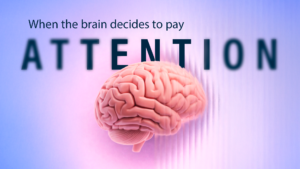
Digital Dependence and Mental Health: How AI Chatbots May Weaken Your Cognitive Sharpness
The exponential rise of artificial intelligence has profoundly transformed both our professional and personal lives. AI chatbots, like ChatGPT, have become indispensable tools for writing emails, summarizing information, generating ideas, and even making work-related decisions. But what happens when assistance turns into dependency? Could our mental sharpness and cognitive health be at risk?
A recent study published in Frontiers in Psychology introduces a critical but underexplored concept: Artificial Intelligence Chatbot–Induced Cognitive Atrophy (AICICA). This term describes the gradual decline of key cognitive functions — such as memory, creativity, and critical thinking — as a result of overdependence on AI tools. While these tools are efficient, they can eliminate the mental effort needed for true professional and personal development.
The Efficiency Trap: When Thinking Becomes Optional
In today’s work culture, efficiency is praised. Using technology to save time seems like a wise choice. However, what many professionals overlook is that the brain requires constant challenges to stay active, agile, and creative. If we stop exercising memory, writing skills, or problem-solving simply because “AI does it better and faster,” we’re disabling vital growth mechanisms.
Neuroscience experts have warned that tech overuse can negatively impact the prefrontal cortex — the region responsible for executive functions such as judgment, decision-making, and emotional regulation. Digital comfort can lead to cognitive laziness, a subtle but real phenomenon that affects even highly skilled professionals.
How It Impacts Professional Development
Many users don’t perceive this as a threat. They believe that using AI allows them to “do more in less time.” But doing more doesn’t necessarily mean learning more — or advancing in key skill development. Young professionals who constantly rely on chatbots for research, writing, or planning may be limiting their future potential.
On platforms like LinkedIn, where personal branding, intellectual leadership, and originality of thought are key assets, an untrained mind quickly falls behind peers who combine AI with independent critical thinking. AI isn’t inherently harmful, but it must be used from a place of control — not dependency.
Signs You May Be Falling into Digital Dependency:
- You feel anxious when asked to write without AI support.
- You forget concepts you once mastered with ease.
- You avoid mentally demanding tasks like analysis or strategic writing.
- You assume the first AI-generated answer is the “best.”
- You notice a decline in creativity or depth of ideas.
These are not signs of failure — they’re warnings that you may be under-exercising your mental resources due to digital convenience.
Strategies to Protect Your Cognitive and Professional Health
1. Mental Digital Detox (1 Day a Week)
Set aside one day per week to complete important tasks without AI or automation. Write manually, brainstorm without prompts, and reflect deeply without external assistance.
2. Exercise Your Memory and Creativity
Engage in unplugged activities like freewriting, analytical reading, puzzles, chess, or journaling. All without tech assistance — let your brain lead.
3. Strengthen Your Critical Thinking Skills
When using AI, never accept the first answer blindly. Compare, challenge, and revise. Train yourself to ask: “What would I do differently?”
4. Practice Learning Without AI
Read physical books, listen to thoughtful podcasts, or take courses where content is not mediated by chatbot interfaces. Learning must remain a human experience.
5. Create Human-Centered Work Environments
Human collaboration fosters empathy, persuasion, and emotional interpretation — abilities AI cannot replicate. Don’t replace human interactions with digital ones.
Emerging Trends and Opportunities
Major tech companies like Google, Microsoft, and Amazon are already addressing this issue. They’ve launched “conscious AI” initiatives that promote balanced use of their tools. On LinkedIn, more experts now advocate for “augmented intelligence” — a model where AI empowers the professional without replacing their agency.
Meanwhile, the market for digital wellness apps is booming. Tools like Mindwell, Elevate, NeuroNation, and Cognifit offer cognitive training programs designed to counterbalance heavy AI usage and keep your brain sharp.
This isn’t about abandoning artificial intelligence — it’s about reconnecting with our most valuable human capacities. Memory, intuition, curiosity, empathy, and creativity aren’t just productivity tools; they are the pillars of our professional identity.
In a world where everyone has access to the same technologies, your competitive edge will lie in how you use your mind. Train it. Protect it. Challenge it. Because while AI may provide quick answers, only you can build a career filled with purpose, leadership, and authenticity.
Reference
Adamopoulou, E., Moussiades, L., & Bai, S. (2024). From tools to threats: A reflection on the impact of artificial-intelligence chatbots on cognitive health. Frontiers in Psychology, 15, 1259845. https://doi.org/10.3389/fpsyg.2024.1259845
Continue reading more articles: https://neurobusiness.us/blog/


